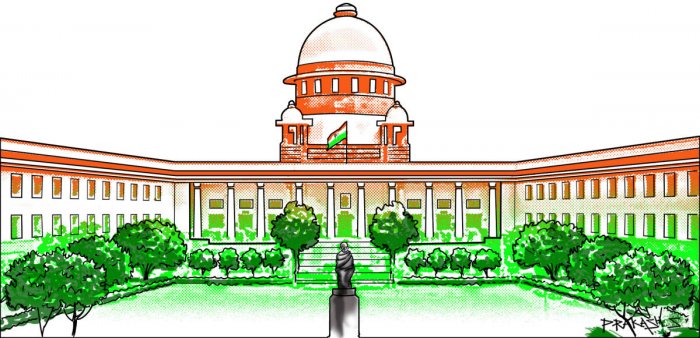Shamima Farooqui
v.
Shahid Khan (2015)
- Bench- Hon'ble Mr. Justice Dipak Misra and Hon'ble Mr. Justice Prafulla C. Pant
- Introduction- What is disturbing is that though the application for grant of maintenance was filed in the year 1998, it was not decided till 17.2.2012. It is also shocking to note that there was no order for grant of interim maintenance. It needs no special emphasis to state that when an application for grant of maintenance is filed by the wife the delay in disposal of the application, to say the least, is an unacceptable situation. It is, in fact, a distressing phenomenon.
- An application for grant of maintenance has to be disposed of at the earliest. The family courts, The purpose ofhighlighting this aspect is that in the case at hand the proceeding before the Family Court was conducted without being alive to the objects and reasons of the Act and the spirit of the provisions Under Section 125 of the Code. It is unfortunate that the case continued for nine years before the Family Court. It has come to the notice ofthe Court that on certain occasions the Family Courts have been granting adjournments in a routine manner as a consequence of which both the parties suffer or, on certain occasions, the wife becomes the worst victim. When such a situation occurs, the purpose ofthe law gets totally atrophied.
You can also read the Blog by visiting [Blog]
For more information, visit [Aashayein Enquiry Section]
Facts-
- The appellant wife ('the appellant') and the respondent husband ('the respondent') were married on 26 April 1992. During her stay at the matrimonial home, the appellant was prohibited from talking to others, and the respondent not only demanded a car from the family but also started to harass the appellant.
- Later, the appellant came to learn that the respondent was having an affair with another woman. As the situation gradually worsened, the appellant left the matrimonial home.
- The appellant filed an application for grant of maintenance at the rate of Rs.4,000 per month on the basis that the respondent was working on the post of Nayak in the army and received salary as well as other perks.
- The Family Court decided in favour of the appellant and directed the respondent to pay a sum of Rs.2,500 as monthly maintenance allowance from the date of submission of application till the date of judgment and thereafter Rs.4,000 per month from the date of judgment till the date of remarriage.
- In the criminal revision before the High Court, the learned judge took note that the respondent had retired on 1 April 2012 and consequently reduced the monthly maintenance allowance by 50% to Rs.2,000.
- The issue that arose was whether the High Court's order of reducing the maintenance allowance after the retirement of the respondent was sustainable.
Issues-
- Whether High Court's order of reducing maintenance allowance was sustainable?
- Whether there was justification to reduce maintenance?
Held (allowing appeal with no order as to costs; setting aside orders of High Court)
- Per Dipak Misra J delivering the judgment of the court:
-
- In today's world, it is extremely difficult to conceive that the respondent would be in a position to manage within Rs. 2,000 per month. A woman, who is constrained to leave the marital home, should not be allowed to feel that she has fallen from grace and move hither and thither arranging for sustenance. As per law, she is entitled to lead a life in the similar manner as she would have lived in the house of her husband. As long as the wife is held entitled to grant of maintenance within the parameters of s. 125 of the Code of Criminal Procedure, it has to be adequate so that she can live with dignity as she would have lived in her matrimonial home. (para 15)
-
- Sometimes, a plea is advanced by the husband that he does not have the means to pay, for he does not have a job or his business is not doing well. These are only bald excuses and have no acceptability in law. It is the obligation of the husband to maintain his wife. He cannot be permitted to plead that he is unable to maintain the wife due to financial constraints as long as he is capable of earning. Solely because the husband had retired, there was no justification to reduce the maintenance by 50%. It is not a huge fortune that was showered on the wife that it deserved reduction. It only reflects the non-application of mind. Hence, this court was unable to sustain the said order. (paras 15, 16 & 19)

